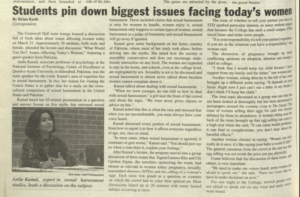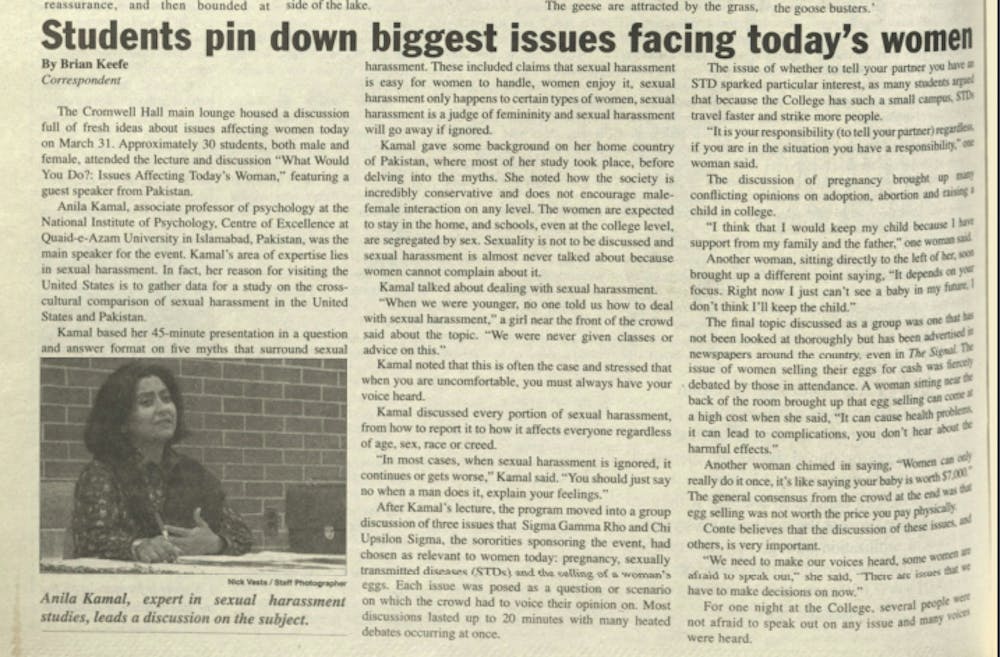By Jane Bowden
Features Editor
In the age of the #MeToo Movement, Women’s History Month has become a time to not only honor women’s accomplishments throughout history, but to also shed light on the obstacles they face every day.
The Signal has covered different initiatives the College has taken to acknowledge women’s rights. In an April 2005 issue of The Signal, a reporter wrote, “What Would You Do?: Issues Affecting Today’s Woman,” a discussion on the issues surrounding sexual harassment and abortion rights.

The Cromwell Hall main lounge housed a discussion full of fresh ideas about issues affecting women today on March 31. Approximately 30 students, both male and female, attended the lecture and discussion "What Would You Do?: Issues Affecting Today's Woman," featuring a guest speaker from Pakistan.
Anila Kamal, associate professor of psychology at the National Institute of Psychology, Centre of Excellence at Quaid-e-Azam University in Islamabad, Pakistan, was the main speaker for the event.
Kamal's area of expertise lies in sexual harassment. In fact, her reason for visiting the United States is to gather data for a study on the cross-cultural comparison of sexual harassment in the United States and Pakistan. Kamal based her 45-minute presentation in a question and answer format on five myths that surround sexual harassment. These included claims that sexual harassment is easy for women to handle, women enjoy it, sexual harassment only happens to certain types of women, sexual harassment is a judge of femininity and sexual harassment will go away if ignored.
Kamal gave some background on her home country of Pakistan, where most of her study took place, before delving into the myths. She noted how the society is incredibly conservative and does not encourage male-female interaction on any level. The women are expected to stay in the home, and schools, even at the college level, are segregated by sex. Sexuality is not to be discussed and sexual harassment is almost never talked about because women cannot complain about it.
Kamal talked about dealing with sexual harassment.
"When we were younger, no one told us how to deal with sexual harassment," a girl near the front of the crowd said about the topic. "We were never given classes or advice on this."
Kamal noted that this is often the case and stressed that when you are uncomfortable, you must always have your voice heard.
Kamal discussed every portion of sexual harassment, from how to report it to how it affects everyone regardless of age. sex, race or creed.
"In most cases, when sexual harassment is ignored, it continues or gets worse," Kamal said. "You should just say no when a man does it, explain your feelings."
After Kamal 's lecture, the program moved into a group discussion of three issues that Sigma Gamma Rho and Chi Upsilon Sigma, the sororities sponsoring the event, had chosen as relevant to women today: pregnancy, sexually transmitted diseases (STDs) and the selling of a woman's eggs. Each issue was posed as a question or scenario on which the crowd had to voice their opinion on. Most discussions lasted up to 20 minutes with many heated debates occurring at once.







